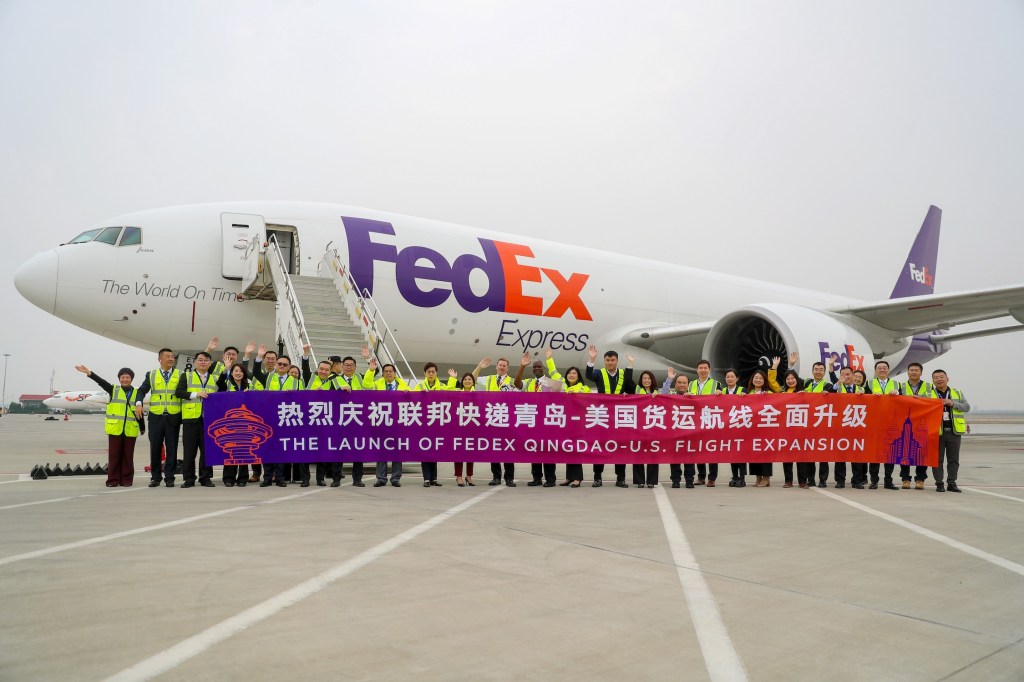Physical Address
304 North Cardinal St.
Dorchester Center, MA 02124
Physical Address
304 North Cardinal St.
Dorchester Center, MA 02124

As a trade war threatens U.S.-China relations and global supply chains alike, FedEx is paying no mind.
The Memphis, Tenn.-based logistics giant plans to further expand its presence in China, president and CEO Raj Subramaniam told a group of international executives and trade association leaders at a roundtable hosted by Chinese President Xi Jinping on Friday.
Subramaniam was one of seven executives who spoke at the event held in Beijing, where Xi made the case for foreign investment in the country in the wake of the tariffs levied against it by the Trump administration.
There were 40 executives in attendance, with Subramaniam sitting alongside Pfizer CEO Albery Bourla, Eli Lilly CEO David Ricks, Blackstone chairman Stephen Schwartzman and Bridgewater Associates founder Ray Dalio among others.
FedEx, which opened a new and expanded China headquarters in Shanghai last year, already operates more than 100 retail branches and over 100 ground stations across the country, along with 3,000 vehicles. It also operates more than 300 international flights in China per week.
“FedEx remains committed to investing in markets that are critical to the future of global commerce,” said Subramaniam. “We acknowledge China’s influential role in global trade and seek to build strong, transparent and mutually beneficial partnerships that support shared innovation and long-term success.”
Subramaniam did not elaborate on the specifics of FedEx’s investment, but the package delivery firm has recently been making more moves that will undoubtedly grow the company’s footprint in the market.
At the end of 2023, the company broke ground on a new south China operations center in Guangzhou that will supplement the company’s Asia Pacific hub at Guangzhou Baiyun International Airport.
Slated to begin operating in 2027, the 440,000-square-foot facility will be able to sort up to 25,000 packages and documents per hour—three times the current FedEx Guangzhou gateway capacity. The Guangzhou gateway handles approximately 40 percent of the hub’s import and export cargo volume.
The expansion is designed to improve FedEx’s capacity and efficiency in processing import and export shipments in south China, and connect Asian customers to FedEx’s North American and European networks.
The Asia Pacific hub also currently hosts a 155-acre, 873,000-square-foot air sorting and handling facility that could sort 36,000 packages per hour.
Last year, FedEx also upgraded another one of its gateways in Shenzhen, equipping an import warehouse with an advanced intelligent warehouse management system and an additional sort belt.
With the enhancements, the gateway expanded its footprint by 48 percent to over 48,400 square feet, doubling the sorting capacity of packages and documents, while increasing freight handling capacity by 50 percent.
And at Shanghai Pudong International Airport, FedEx plans to expand its Shanghai International Express and Cargo Hub, so that there are more air transit lanes connecting Shanghai with China’s second- and third-tier cities. This is aimed at connecting these cities with more international markets.
In November, FedEx opened two new gateways in Xiamen and Qingdao, and also increased international flight frequency out of both cities from once a week to five times per week. Both services will stop in Memphis.
FedEx is also upgrading its capabilities within China to support e-commerce delivery.
In early March, FedEx launched a picture proof of delivery service for express residential deliveries on the Chinese mainland, where signatures upon delivery are not required. With recipient authorizations, FedEx couriers can deliver the parcel to customers’ doorsteps and take a real-time photo showing its exact position, according to the company.
This gives consumers the location of where their shipment was left, and can also show a picture of a door tag in the event of a missed delivery.
If there’s a major American exec who would understand the potential benefits of a closer relationship between the U.S. and China, Subramaniam would be on the short list.
The FedEx CEO also serves as the chair of the U.S.-China Business Council, a nonprofit organization comprising over 270 American businesses that is aimed at promoting trade between both countries.
According to a report from China Daily, Subramaniam said the meetings held with Chinese leaders significantly reinforced his “unwavering” confidence in China’s long-term growth. He also emphasized the need for governments and businesses to bolster supply chain flexibility and resilience by streamlining processes and reducing regulatory trade barriers.
In the Friday roundtable, Xi acknowledged problems encountered by foreign investors in China, saying that the country plans on lowering the market access threshold, maintaining fair competition and strengthening service guarantees for international businesses exiting the market.
“In recent years, foreign investment in China has also encountered interference from geopolitical factors, which involves international politics and diplomacy. I often say that blowing out other people’s lights will not make your own light brighter; blocking other people’s roads will only block your own road in the end,” Xi said, in an apparent swipe at President Donald Trump.